Innovation in recruitment methods
Mr. Nguyen Tu Long, Deputy Head of the Department of Civil Servants and Public Employees ( Ministry of Home Affairs ) said that the draft Law was developed with a focus on innovating the mechanism and methods of managing and using civil servants, including innovating recruitment methods and focusing on building teams according to job positions, taking job positions as the center.
Regarding job positions, management focuses on 3 groups of job positions in public service units, including leadership, management, professional and support positions, no longer shared professional positions and specialized professional positions. In a public service unit, there can be many job positions and job titles. The law determines that the job positions and job titles of civil servants are the center.
Regarding the authority to recruit, manage and use, the Law currently stipulates that the authority to recruit is assigned to autonomous public service units and competent agencies to manage public service units. However, in reality, there is a gap between the authority to recruit and the authority to use civil servants. In this amendment, the draft law stipulates that the authority is assigned to the province to directly delegate to government levels such as the People's Committee at the commune level or to public service units.
According to Mr. Long, one of the fundamental reasons for amending the Law on Public Employees is to ensure the use of public employees in accordance with the spirit of Resolution 57. The current law also allows public employees to engage in professional activities that do not violate regulations, but it is unclear about the rights and responsibilities of public employees and the authority of public employees in establishing and operating enterprises. The draft law takes an approach that does not prohibit but follows specialized legal regulations.
In addition, another innovation is to expand the attraction of quality resources, ensure resource connectivity between the public and private sectors, allow the reception of experts, scientists and foreign experts to work as civil servants in some specific professions. Allow signing contracts to perform some civil servant tasks, including in leadership and management positions.
In the introductory report, Dr. Tran Anh Tuan, Chairman of the Vietnam Association of Administrative Sciences, former Deputy Minister of Home Affairs, said that comprehensive research and amendment of the Law on Public Employees is very necessary to clear the current "bottlenecks" such as renewing the thinking on autonomy and self-responsibility of public service units; strongly implementing decentralization and delegation to public service units; innovating the mechanism of recruitment, use and management of public employees; attracting and promoting talented people; promoting dynamism and creativity; connecting the public sector with the private sector... improving the quality of state management services and serving the people.
Dr. Tran Anh Tuan expressed his opinion, continuing to implement the ideology in law-making: not to include the organization and management of cadres, civil servants, and public employees in specialized laws. The management of the staff in the public service sector must be implemented according to the Law on Public Employees. It is necessary to review and abolish regulations related to organization and public employees in other specialized laws, according to the principle of one law amending many laws.
Along with that, we need to change the mindset about organizational classification and about autonomy and self-responsibility of public service units; shift from management to administration, assign autonomy and self-responsibility for organizing work implementation; about using and managing resources (human resources, finance, technology, innovation, etc.); redefine who is a civil servant and who is a public employee in the activities of the public service sector.
Transparency of recruited subjects
Mr. Thai Quang Toan, former Director of the Department of Organization and Personnel (Ministry of Home Affairs) proposed to properly implement Decree 120/2020/ND-CP of the Government regulating the establishment, reorganization and dissolution of public service units. On that basis, arrange and reorganize public service units of each industry and field according to the principle that in case it is necessary to establish a new public service unit, that unit must fully ensure its finances (except in cases where it must be newly established to provide basic and essential public service services). A public service unit can provide many public service services of the same type to significantly reduce the number of focal points, overcome overlaps, dispersion and duplication in functions and tasks. Restructure or dissolve ineffective public service units. Promote socialization, convert economic and other service units to not receive salaries from the state budget, according to the enterprise mechanism.
Mr. Thai Quang Toan said that it is necessary to clearly distinguish between the implementation of political tasks assigned by the State and the service business activities of public service units.
Regarding the mechanism of management, recruitment, and use of civil servants to avoid conflicts of interest and abuse, Ms. Hoang Thi Ngan, former Director of the Department of State Administrative Organization and Public Service, Government Office, emphasized that to avoid abuse, there must be transparency, and transparency first of all means transparency of civil servants, transparency of recruited subjects according to a special mechanism called "reception" and transparency of the recruiting subject itself.
“Are there any foreigners in the staff? It must be fair and clear, not ambiguous, whether there are foreigners or not must be clear,” Ms. Ngan said.
She also said that recruitment has two forms: examination and selection, in addition to the "reception" mechanism. Now it is necessary to clarify that "reception" is a form, there is no "other" form. Such a clear regulation is to avoid opinions that it is abusive or ambiguous.
Regarding recruitment authority, the draft law goes in the right direction by clearly stipulating that public service units have the right to recruit, but in the case of a public service unit that is 100% dependent on the state, the recruitment mechanism must be different and cannot be on par with other cases.
Source: https://baotintuc.vn/thoi-su/tap-trung-xay-dung-doi-ngu-vien-chuc-theo-vi-tri-viec-lam-20251016155411253.htm





![[Photo] Closing ceremony of the 18th Congress of Hanoi Party Committee](https://vphoto.vietnam.vn/thumb/1200x675/vietnam/resource/IMAGE/2025/10/17/1760704850107_ndo_br_1-jpg.webp)


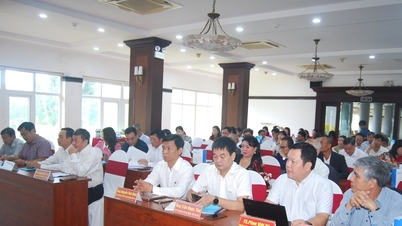

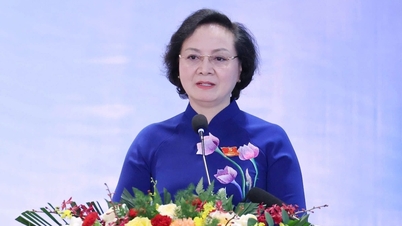





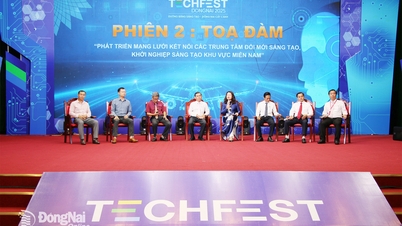


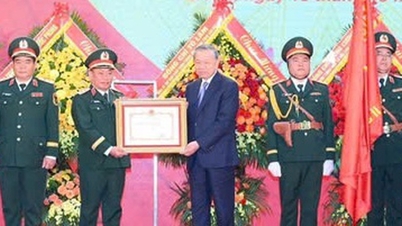

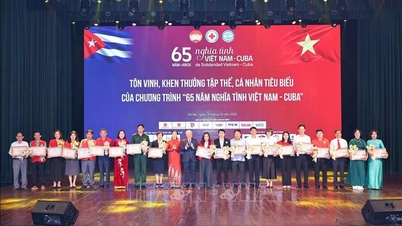
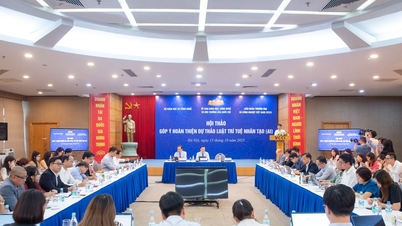


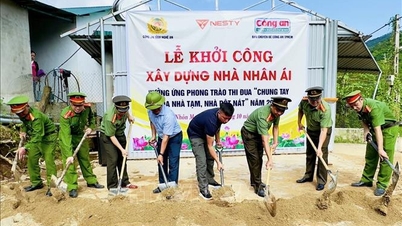
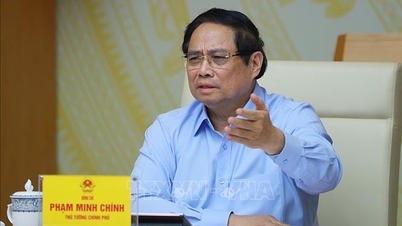







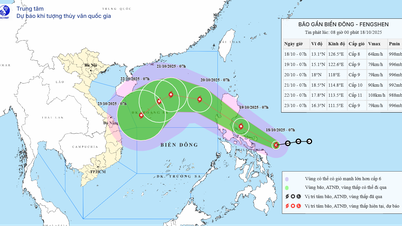
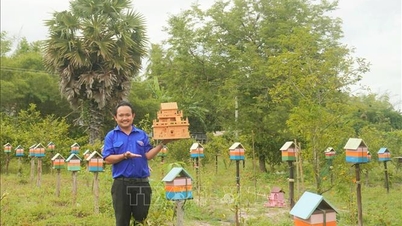


![[Photo] Nhan Dan Newspaper launches “Fatherland in the Heart: The Concert Film”](https://vphoto.vietnam.vn/thumb/1200x675/vietnam/resource/IMAGE/2025/10/16/1760622132545_thiet-ke-chua-co-ten-36-png.webp)































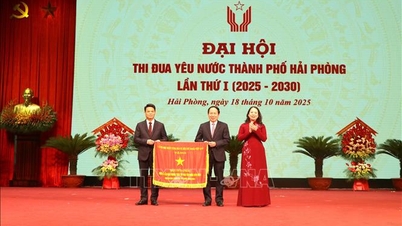
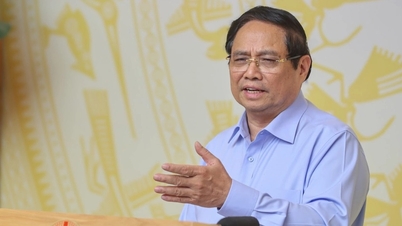








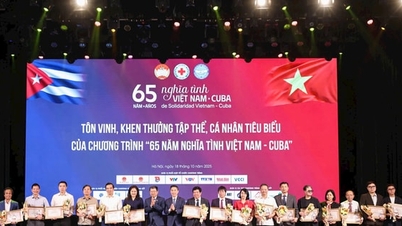


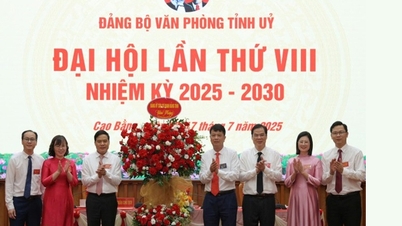

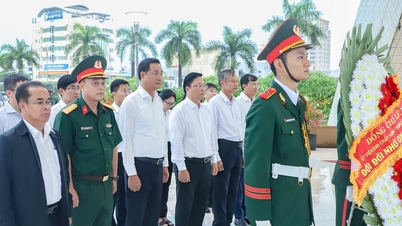

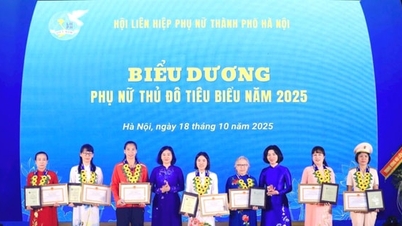













Comment (0)